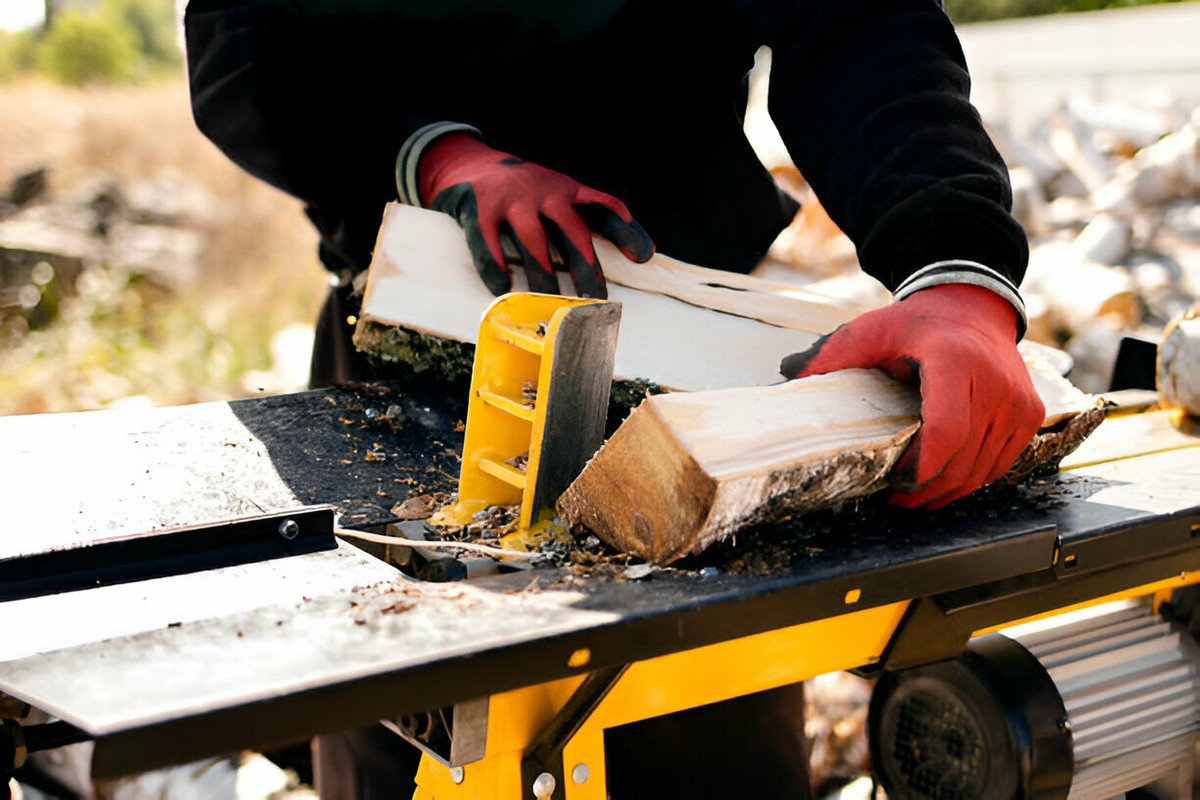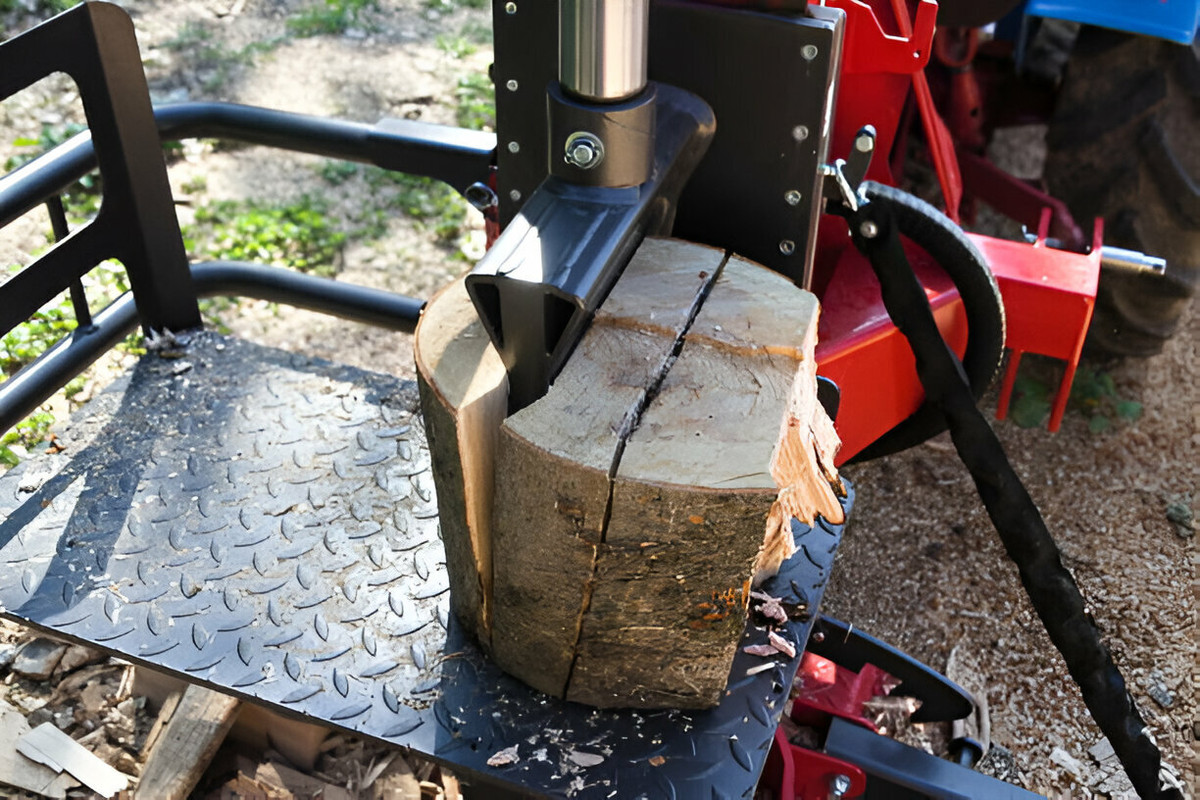In the realm of home improvement and maintenance, owning a log splitter often raises conflicting opinions. Many question its necessity, others are unsure about the return on investment, and some simply revolve around the debate of hiring versus buying. Even those committed to sustainable living and backyard bonfires might ask, "Should I really buy a log splitter?" You are perhaps contemplating it too, and that's why we're diving into this topic today. We say, owning your high-quality log splitter is not only reasonable but can also be a savvy move for a whole host of reasons. Let's navigate through the ifs and buts, and delve deeper into why investing in a top-notch log splitter is worth it.
In this extensive piece, we'll be exploring multiple facets linked to the potential purchase of a log splitter. We'll break down why owning one is beneficial, consider what to look for when making your purchase, and delve into when it is the most appropriate time to buy. By the end, our aspiration is for you to have a holistic understanding and be poised to make an informed choice.
Log splitters are the unsung heroes of many homes, significantly reducing the physical effort you exert chopping wood, regardless if it's for residential heating, bonfires, or crafty DIYs. They come in various models catering to different budgets, splitting capacities, and user needs. However, what matters most is investing in a high-quality splitter that gives you the optimal liaison of functionality, cost-effectiveness, durability, and safety.

The Perks of Owning a Log Splitter
Owning a log splitter for sales comes with an array of benefits transcending mere convenience. It influences our well-being, time, and finances in surprising ways. While some of these are immediately apparent, others tend to show up over the course of use.
Log splitters drive efficiency. A high-quality model can split more logs in less time than traditional manual splitting, dramatically speeding up the process. In large quantities, this increased productivity is bound to be a significant time-saver.
Splitters also offer remarkable health advantages. Manual log splitting strains the back, shoulders, and joints. The constant lifting can result in cumulative injury. A log splitter, however, mitigates these health risks, turning log splitting into an almost effortless task.
When we talk about owning versus renting, owning a log splitter, especially if you’re a regular user, proves to be more cost-effective in the long run. Renting might be viable for one-off tasks, but recurrent rents add up, easily outweighing the one-time cost of a quality splitter.
Selecting the Perfect Log Splitter
Quality determines the longevity, performance, and overall safety of a log splitter. Therefore, distinguishing high-quality models from the seemingly endless pool on the market is imperative. Generally, top-tier splitters are characterized by robust construction, reliable engines, powerful splitting capacities, and efficient hydraulic systems.
Brand reputation is a good initial indicator of quality. Reviews and customer experiences can shed light on longer-term durability, performance, and the company’s customer service.
Size and power specifications should match your log-split requirements. A splitter that's too weak will strain to split larger logs, while one that’s overly powerful for your needs may be an unnecessary expense.
Your choice also depends on the splitter type—manual, electric, or gas. Each has its unique upsides and downsides. Your decision should tie in with your specific requirements, preferences, and ultimately, budget.
The Optimal Time to Buy a Log Splitter
Like most products, log splitters see price fluctuations throughout the year. The secret is in knowing when to make your purchase.
Usually, retail prices for log splitters soar during fall and winter, paralleling the increased demand for firewood. On the other hand, prices tend to drop in spring and summertime as the demand diminishes. Retailers often offer discounts during these off-peak months to maintain steady sales. Consequently, it's best to consider buying a log splitter in spring or early summer.
Examining the Prevalent Drawbacks
Investing into a log splitter isn't all rosy – a few potential drawbacks exist.
Firstly, there's the upfront investment. High-quality log splitters come with a substantial price tag. They're not a negligible investment and may be beyond some homeowners' reach.
Secondly, certain log splitters necessitate storage space. If you're devoid of sufficient storage or live in a compact space, this could pose a real issue.
Lastly, gas and electric log splitters require maintenance. Irrespective of the quality, neglecting routine maintenance can depreciate its effectiveness and lifespan.
Log Splitters and Sustainable Living
In today’s environmentally-conscious society, there's an increasing demand for sustainable products. Owning a log splitter adheres to this mindset, providing a greener alternative to other heating methods. Manual or electric log splitters spew lesser emissions compared to burning fossil fuels. Besides, the act of splitting logs itself endorses recycling and reuse, especially if you’re repurposing fallen trees from storms or landscaping efforts.
Conclusion
Buying a log splitter is about assessing your personal needs, affordability, and long-term value. Yes, there’s an upfront investment, but the rewards tend to outweigh the initial spend considerably. Owning a splitter counteracts recurrent rental costs, increases productivity, enhances comfort, reduces health risks, and promotes sustainability.
Choosing the perfect splitter isn't about opting for the strongest or the most coveted brand. Rather, it's about finding a model that brings together your splitting needs, budget, and quality specifications. And remember, the best time to make your purchase is during the off-peak season.
Purchasing a high-quality log splitter isn't the end, though. Owning one is a commitment—it requires shelter, routine maintenance, and occasional repair.
In conclusion, owning a high-quality log split can be more of a boon than a bane. If you frequently find yourself dealing with wood, opting for a log splitter is a smart, long-term investment. They say the hearth is the heart of a home – let your log splitter lend a helping hand in keeping your home fires burning bright and warm.








0 Comments